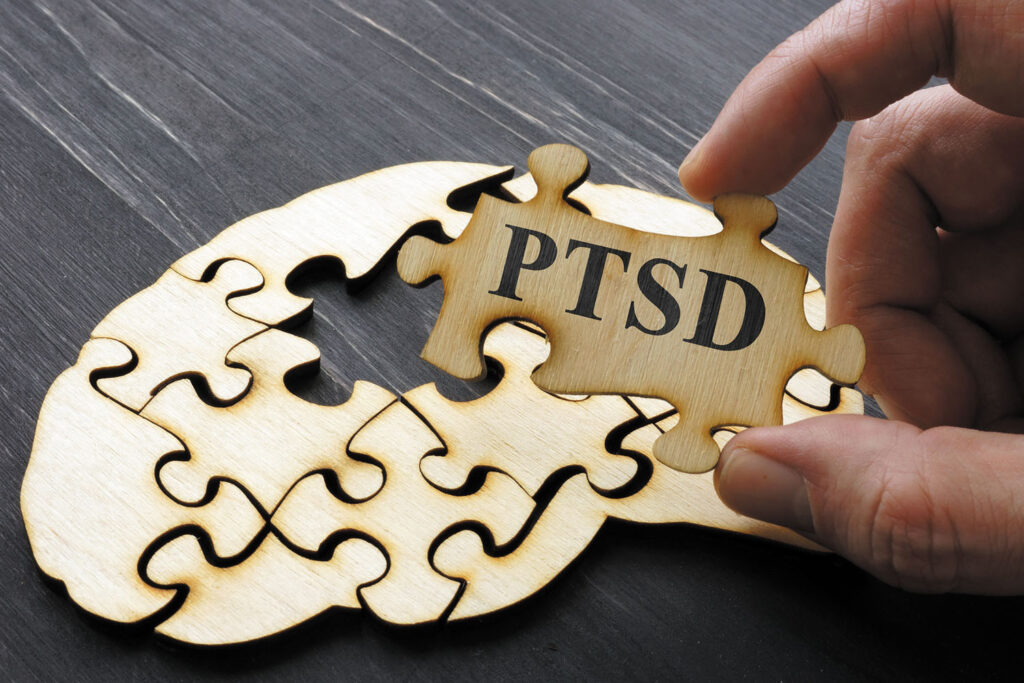Post-Traumatic Stress Disorder, commonly known as PTSD, is a psychiatric disorder that affects people who have experienced or witnessed a traumatic event. PTSD can occur after experiencing a range of traumatic events, such as natural disasters, combat, sexual or physical assault, accidents, or any other event that may cause a person to feel overwhelmed, helpless, or fearful. In this article, we will explore what are the causes of post traumatic stress disorder, including genetic, environmental, and psychological factors.
Are some people more at risk of PTSD?
Yes, some individuals are more at risk of developing PTSD than others. The risk of developing PTSD can be influenced by various factors, including:
- The severity of the trauma: The more severe and intense the trauma, the higher the risk of developing PTSD.
- The duration of the trauma: Traumatic experiences that last for a prolonged period, such as long exposure to combat, can increase the risk of developing PTSD.
- The proximity to the trauma: Individuals who are physically closer to the traumatic event, such as first responders, are at a higher risk of developing PTSD.
- The nature of the trauma: Traumas that involve interpersonal violence, such as sexual assault or physical abuse, are more likely to lead to the development of PTSD than traumas that involve natural disasters or accidents.
- Prior trauma exposure: Individuals who have experienced previous traumas or adverse life events are at a higher risk of developing PTSD.
- Genetics: Some studies suggest that genetics may play a role in the development of PTSD. Individuals with a family history of anxiety or depression may be more susceptible to developing PTSD.
- Lack of social support: The availability of social support, such as friends and family, can act as a protective factor against PTSD. Individuals who lack social support may be at a higher risk of developing PTSD.
The most common cause of PTSD
There is no one specific cause of PTSD, as it can develop from a variety of traumatic events such as military combat, natural disasters, car accidents, sexual or physical assault, or any other experience that involves a threat to one’s life or safety.
That being said, research has shown that the most common cause of PTSD is exposure to interpersonal violence, such as sexual or physical assault, domestic violence, or childhood abuse. Studies have found that individuals who experience interpersonal violence are at a higher risk of developing PTSD than those who experience other types of trauma.
It is worth mentioning that not everyone who experiences a traumatic event will develop PTSD, and the severity of the trauma does not necessarily predict the likelihood of developing PTSD. Other factors, such as genetic predisposition, personality traits, and social support, can also influence an individual’s chance of developing PTSD.
Regardless of the cause, it is important for individuals who have experienced a traumatic event and are experiencing symptoms of PTSD to seek professional help. Effective treatments, such as therapy and medication, are available to help manage symptoms and improve quality of life.
What causes PTSD: Genetic factors
Several investigations indicate that genetics play a role in the development of PTSD. Some people may have a genetic predisposition to developing PTSD after experiencing a traumatic event. Studies have shown that individuals with a family history of anxiety, depression, or PTSD may be more likely to develop the disorder themselves. Additionally, research has found that specific genetic variations may contribute to a heightened sensitivity to stress, making an individual more susceptible to developing PTSD.
Environmental PTSD causes
Environmental factors can also lead to the development of PTSD. For instance, people who have experienced traumatic events in their childhood, such as abuse or neglect, may be more likely to develop PTSD later in life. Exposure to multiple traumatic events, such as living in a war zone, may also increase the risk of developing PTSD. Furthermore, lack of social support or access to mental health care can contribute to the development of PTSD.
Psychological causes of PTSD
If you wonder what causes post traumatic stress disorder, psychological factors might also play a role. For instance, people who have a history of anxiety or depression may be more likely to develop PTSD after a traumatic event. Apart from that, people who experience intense or prolonged stress may be more susceptible to developing PTSD. Individuals with a history of dissociation or difficulty coping with stress may also be more vulnerable to developing PTSD.
Symptoms of PTSD
PTSD symptoms can vary in severity and duration. Common symptoms include flashbacks, nightmares, intense anxiety, and avoidance of triggers that remind the person of the traumatic event. People with PTSD may also experience mood swings, irritability, and trouble sleeping. Symptoms of PTSD can last for months or years and significantly impact a person’s daily life.
Can you tell if someone has PTSD?
PTSD can be characterized by a range of signs, including intrusive thoughts or memories of the traumatic event, nightmares, flashbacks, avoidance of situations or stimuli that remind the person of the trauma, negative changes in mood and thinking, and heightened arousal or reactivity, such as feeling easily startled or on edge.
If you suspect that someone you know may be experiencing symptoms of PTSD, it is vital to encourage them to seek professional help. A mental health professional can provide an accurate diagnosis and develop a treatment plan tailored to the individual’s needs. It is also important to be supportive and understanding, as individuals with PTSD may feel shame, guilt, or embarrassment about their symptoms.
Treatment for PTSD
Fortunately, there are several effective treatments available for PTSD. The most common treatment for PTSD is psychotherapy, which involves talking with a mental health professional to learn coping strategies and techniques for managing symptoms. Cognitive-behavioral therapy (CBT) and Eye Movement Desensitization and Reprocessing (EMDR) are two types of therapy that have been shown to be particularly effective for treating PTSD.
In addition to psychotherapy, medication can be used to treat PTSD. Antidepressants and anti-anxiety medications are commonly prescribed to help manage symptoms of PTSD. Yet, medication should only be used in conjunction with therapy and under the supervision of a mental health professional.
Conclusion
To sum up, PTSD is a complex disorder that can be caused by a range of factors, including genetic, environmental, and psychological factors. While PTSD can have a significant impact on a person’s life, there are effective treatments available. People with PTSD should seek the help of a mental health professional to learn coping strategies and techniques for managing their symptoms. With proper treatment and support, people with PTSD can live fulfilling and meaningful lives.

